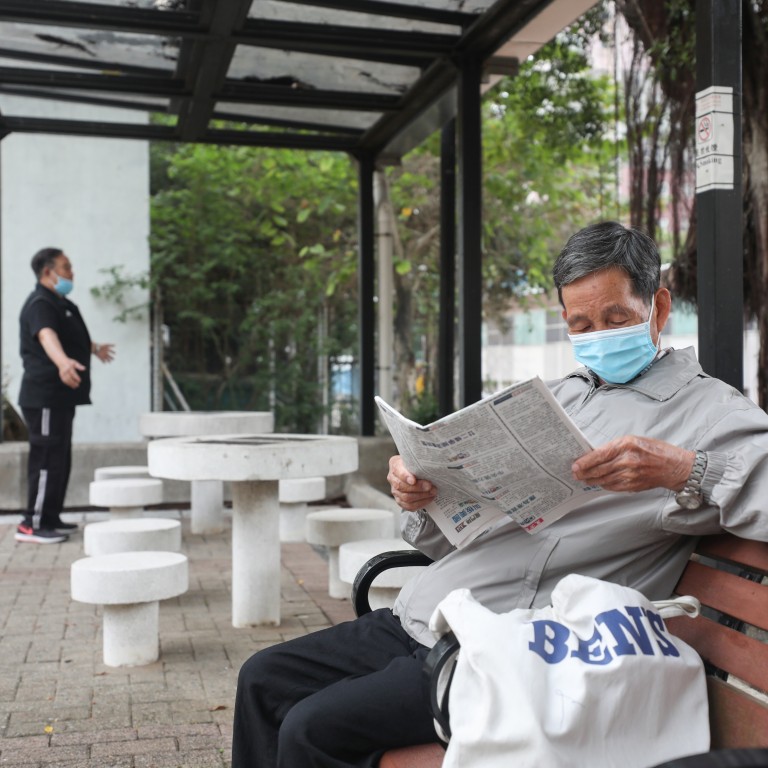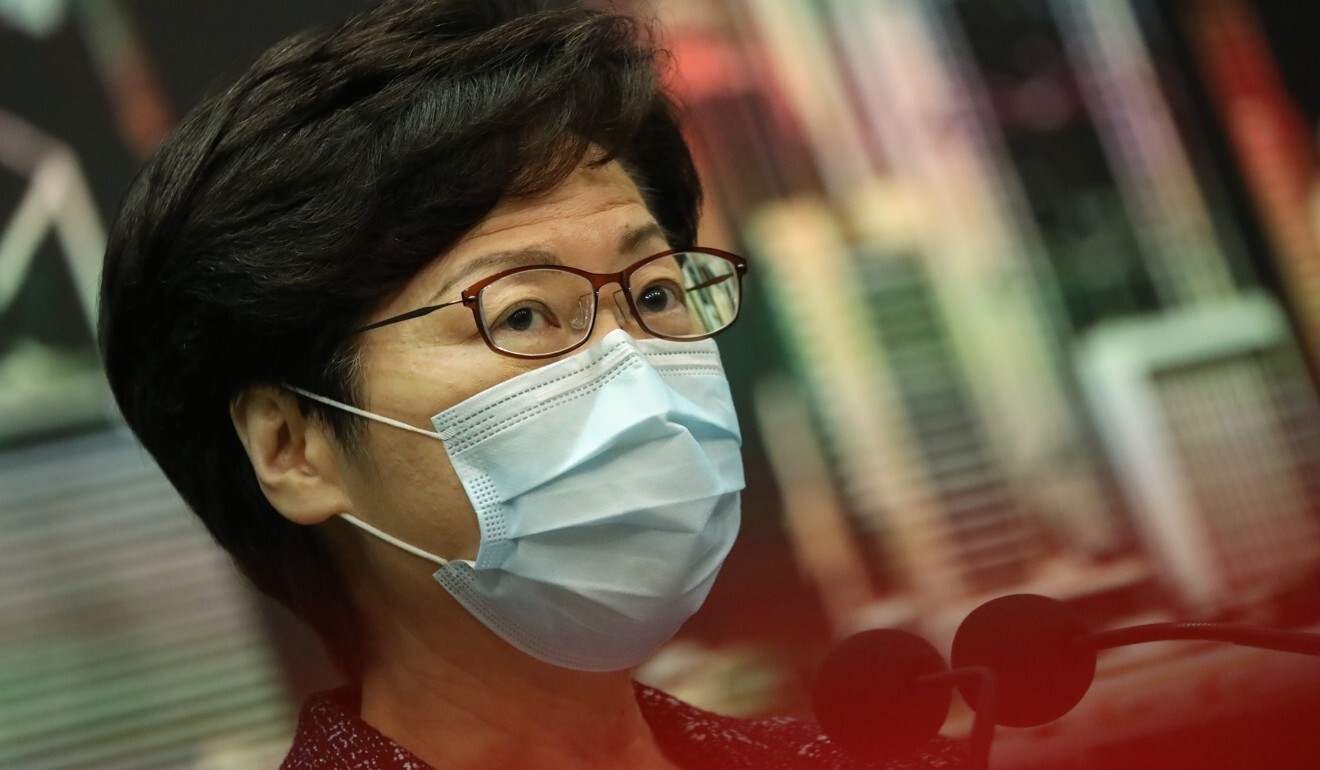
Coronavirus: eight patients in Hong Kong again test positive for Covid-19 after leaving hospital
- Health officials play down fears of the patients spreading the virus in the community, saying the risk of infection is low
- City records two new cases on Saturday, with both patients having a recent history of travel to Britain
Both cases had a history of travel to Britain. They involved an 18-year-old female student and a 61-year-old man whose granddaughter and domestic helper were infected previously, according to Dr Chuang Shuk-kwan, head of the Centre for Health Protection’s communicable disease branch.
Chuang also said eight patients had tested positive for the virus after being discharged from hospital but played down fears of them spreading the virus in the community.
The reconfirmed cases made up about 1 per cent of the 741 discharged patients in the city.
“We brought those cases to our team of experts who believe the virus could be residue in the body after treatment and the risk of infection to others is low,” she said.
Coronavirus may have lesser after-effect on patients than Sars, Hong Kong expert says
Dr Lau Ka-hin, the Hospital Authority’s chief manager for quality and standards, said the eight patients were in isolation wards after reporting either mild symptoms such as coughing or a runny nose or remaining asymptomatic.
He said blood tests and viral culture would be used to get a better understanding of the coronavirus’ epidemiological and clinical characteristics.
“From their blood tests, we will know whether certain types of antibodies were present in the patients … And to be more secure, we will also cultivate the virus [extracted from patients] to see if it still survives and is active,” Lau said.
Mainland China, Italy and France were among many countries around the world that recorded patients who were reconfirmed as positive for Covid-19 after being treated. A study released this month by scientists from China and the United States found that 14.5 per cent of recovered patients in Guangdong province later retested positive.
“Cases in various places in the world have shown that it took a very long time to kill all of the virus in some patients,” Lau said.
While declining to compare rates elsewhere with Hong Kong, he cited a recent report by South Korea’s health authorities that said repeat patients had little or no infectivity after examining six of 39 relapses.
But Lau advised discharged patients to keep their masks on while staying at home, maintain strict personal hygiene, and observe whether they had respiratory symptoms.
He said once the viral culture results came out in two to three weeks, the authorities might better understand whether certain groups were prone to relapses and could formulate corresponding measures.

He believed the chances of testing positive again did not correlate with age or underlying illnesses, as the eight patients ranged from a teenager to someone in their 60s, with some in healthy condition.
By Saturday, 296 patients were being treated in the city’s public hospitals for Covid-19, with four in critical condition.
The occupancy rate of isolation beds and wards was 41 and 57 per cent respectively.
The health officials also commented on a police decision on Friday to ban an annual May Day march, despite the organiser, the Hong Kong Confederation of Trade Unions, proposing that those taking part practice social distancing by proceeding in groups of four and staying 1.5 metres apart.
Asked how public health and people’s right of assembly could be balanced, Chuang said “all unnecessary assemblies” should be avoided to lower the risks of coronavirus transmission.
On Saturday morning, Chief Executive Carrie Lam Cheng Yuet-ngor said while she was a bit “relieved” to see a significant drop in the number of cases, the government needed to remain alert given the volatility of the epidemic, including the continued enforcement of social-distancing measures.
“The decision to extend various enhanced social-distancing measures to early May is no doubt a further blow to the affected business sectors,” Lam said in an article published online by her office.
“The government fully understands the disappointment and frustration of these sectors, but we dare not let down our guard as we look at the second or third wave of outbreaks around the world.”
The World Health Organisation, meanwhile, on Saturday said there was no evidence that people who had recovered from the virus and had antibodies were protected from a second infection.
Although some patients had very low levels of neutralising antibodies in their blood, no study had evaluated whether their presence conferred immunity to subsequent infection, it said.


